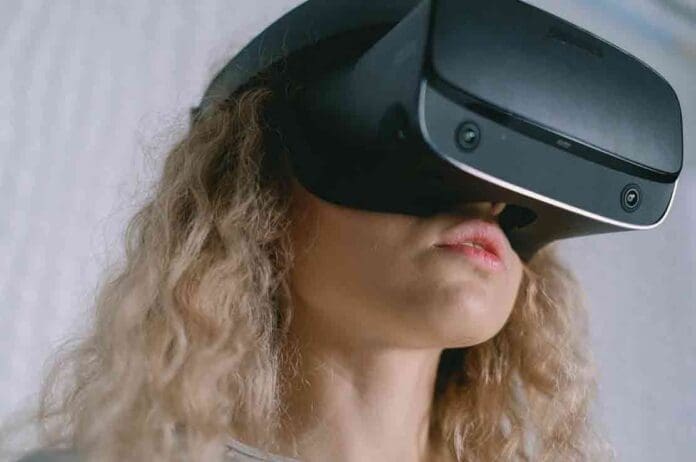Mental health tech is becoming more common in meeting increasing issues across the globe. As anxiety, stress, and depression patients look for drug-free alternatives, modern technology could hold part of the answer. From VR to AI, here are some innovative psychological therapies.
Remote Therapy Treatments
The COVID-19 pandemic was one of the greatest tragedies in modern history. Yet, for all the unnecessary deaths, the illness highlighted some of the biggest problems in society. Loneliness and isolation issues were among the highest reported that added to stress and anxiety. Today, online therapy covered by insurance is a major help for those in need of support who cannot necessarily make it out of the home or don’t have people in their lives to provide support.
VR Mental Health Tech
There are over 3 billion gamers in the world, and virtual reality is a growing genre. But far from diving into Resident Evil in VR, the immersion of VR systems can help with specific conditions:
- Increasing exposure to phobia situations can help people get over fears.
- VR is being used in the UK to help patients stay calm during invasive procedures.
- Certain VR therapies are helping patients overcome emotional challenges.
We are only seeing the beginning of VR systems today. In the future, patients will also be able to experience more than sight and sound with neurosensory devices for touch and possibly smell.
Telehealth Systems
Advice, appointments, and diagnosis no longer rely on booking and seeing a doctor or health professional. Today, telehealth systems make it easier for patients with mobility and mental health debilitation to seek the help they need. From the comfort and privacy of home, a patient can use a webcam for visual examinations and speak to a healthcare worker via a microphone. This also has the added benefit of reducing contagions in surgeries and freeing up GP time.
Wearables for Mental Health Tech
Some of the more impressive advancements in modern tech is that of smart wearables. Wearables have all kinds of benefits for physical and mental health. Because of this, wearables are becoming more popular with people taking health seriously. Here are some examples:
- Oura ring tracks sleep and physical activity to assist with a healthier lifestyle.
- Muse EEG headbands monitor biosignals and recommend meditation practices.
- Apple Watch comes with a suite of tools and apps for physical and mental health.
- FitBit Sense 2 tracks data to address the causes of stress in your lifestyle.
- Thync devices provide neurostimulation, such as TENS, to improve your mood.
Some patients are seeing excellent results with some of these devices. The act of monitoring health for data allows you to trace what could be causing an issue and provide solutions. Even counting how many steps you have taken provides encouragement to be more active.
Live Service Chat
Fast and efficient service doesn’t only relate to corporations. Patients may not necessarily have an emergency but need to speak to a medical expert. Private and state-run medical services alike are now offering live chat for patients. Live chat is an excellent gateway for people with anxiety problems, mobility issues, and those with work commitments. Through a simple chat interface, you can seek guidance, receive necessary signposting, and book an appointment.
Mental Health Tech with AI
In the UK, 76% of NHS workers stated they support the use of AI for mental health. While we don’t have AI doctors (yet), there are some AI systems that are helping people every day:
- Personal AI coaches like Wysa offer encouragement and stress management.
- AI tools can monitor common sources of stress, such as social media usage.
- AI companions are being used to help people manage loneliness and isolation.
As medical experts struggle to manage time and workloads, AI assistants can bridge the gap. However, even at home, AI systems can monitor biosignals and report back to your doctor.
Digital Therapy Apps
Anxiety, stress, and depression are becoming more common these days. With a connected world, we can access therapy on the go. While there are no official medical associations with apps such as Headspace, millions of users swear by the use of these apps. Headspace and apps like it offer personalized routines for relaxation. Meditation, binaural beats, and breathing exercises are available, which are proven as ideal complementary therapies for mental health.
Summary
Remote treatments, such as online therapy, are a powerful example of mental health tech being used for improved well-being. Of course, you can also use wearable tech to monitor your body, mind, and sleep. Then, there are popular apps for meditation and breathing exercises for stress.









